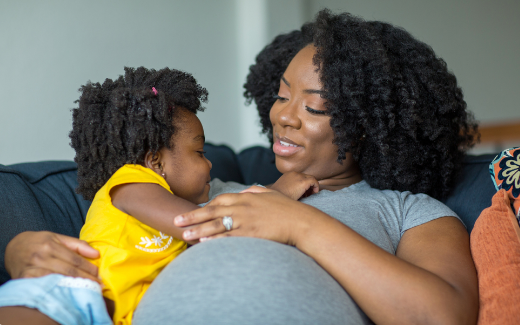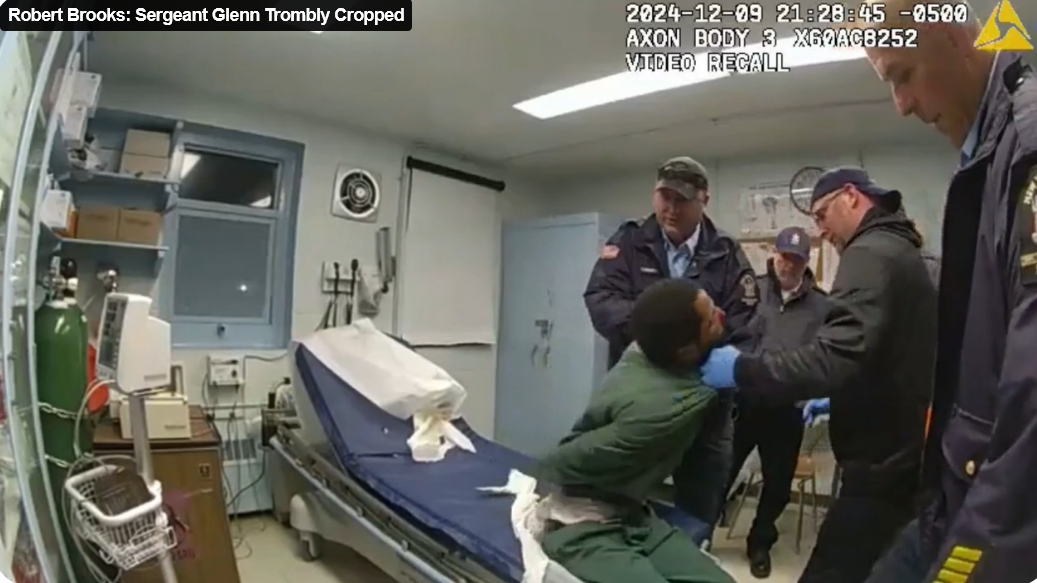Photo: A Better Balance\CDC.GOV
Thursday, Rep. Carolyn B. Maloney, the Chairwoman of the Committee on Oversight and Reform, and Committee Member Rep. Robin Kelly co-chaired a hybrid hearing examining the maternal mortality and morbidity crisis experienced by Black birthing people in America.
“Black Americans experience higher rates of life-threatening complications at every stage of childbirth, from pregnancy to postpartum,” said Chairwoman Maloney during her opening statement. “Thankfully, Black women leaders here in the halls of Congress and across the country have developed policies to systemically shift the way we approach health care for birthing people of color, and promote programs and resources that are proven to reduce the rates of maternal mortality in these communities.”
“In the next few weeks, I will reintroduce my key maternal health legislation – the Mothers and Offspring Mortality and Morbidity Awareness Act, also known as the MOMMA’s Act,” said Rep. Robin Kelly during her opening statement. “This bill will help standardize data collection, provide grants to improve maternal and infant health, and establish regional centers of excellence, which will improve how our health care professionals are educated in implicit bias and delivering culturally competent health care.”
The Committee heard testimony from congressional leaders on the fight against Black maternal mortality Congresswoman Ayanna Pressley, Congresswoman Cori Bush, Black Maternal Health Caucus Co-Chair Alma S. Adams, Ph.D, and Black Maternal Health Caucus Co-Chair Lauren Underwood.
The Committee also heard testimony from Tatyana Ali, actress and advocate; Charles Johnson, husband of Kira Johnson and Founder of 4Kira4Moms; Veronica Gillispie, M.D., FACOG, MS, Medical Director of Louisiana Perinatal Quality Collaborative; Joia Adele Crear-Perry, M.D., FACOG, Founder and President of the National Birth Equity Collaborative; Jamila Taylor, Ph.D., Director of Health Care Reform and Senior Fellow at The Century Foundation; and Tamika Auguste, M.D., Member of the Board of Directors of the American College of Obstetricians and Gynecologists.
These witnesses provided the following information:
America is faced with a dire maternal health crisis, which is far worse for Black people.
- In response to a question from Rep. Cori Bush about how America’s legacy of slavery affects Black maternal health outcomes today, Dr. Taylor responded: “There’s a direct connection to some of the same situations that we see now, in terms of Black women’s pain being ignored or outright diminished in the context of their interactions with health care providers… . Slavery and the barbaric situations we saw during that time have a definite connection to some of the same challenges that Black women are going through today.”
- In response to questions from Rep. Alexandria Ocasio-Cortez about how midwives and doulas can help protect against medical racism experienced before and during childbirth, Tatyana Ali testified that midwives and doulas “play more than birth-worker roles in many cases.” She continued, “they’re often put into positions where they have to defend the rights to autonomy,” and explained that midwives and doulas protect the rights and choices of families.
Black people have historically faced a disproportionate risk of death and other adverse outcomes before, during, and after pregnancy.
- Dr. Gillispie stated: “Our Black persons are afraid, and they have every right to be when 700 mothers, wives, sisters, daughters are lost in childbirth every year—when our chance of dying is 3 to 4 times that of our white counterparts.”
- Ms. Ali emphasized that racism threatens Black birthing people without regard for their socio-economic status, education, or fame: “I want you to understand that none of that matters in the hospital, in labor or post-partum care, where we are all stripped down and dressed in the same blue and green gowns. The God’s truth is that class and education should never matter. The consistent variable here is race.”
Congress must support and fund programs specifically to address Black maternal mortality.
- Dr. Crear-Perry highlighted the need for comprehensive and accurate Black maternal health data collection legislation like Congresswoman Kelly’s MOMMA’s Act. She stated: “We need to have data so they don’t operate out of bias when we create policies and strategies and investments just like we had to do during the COVID pandemic.”
The Committee is working hard to shine a light on this pressing issue and highlight legislation that has been introduced to address this problem.
- Dr. Crear-Perry urged Congress to pass Congresswomen Underwood and Adams’ Black Maternal Health Momnibus Act. She stated: “The Momnibus Act advances reproductive justice by joining once fragmented issues like racism within the health care system, implicit bias training system, veterans, substance use disorder, climate change and environmental justice, criminal justice, and medical technology by centering the most marginalized Black and Indigenous birthing people.”
- Dr. Crear-Perry also called on Congress to pass Congresswoman Pressley’s COVID-19 Safe Birthing Act, noting that “the COVID-19 pandemic has disproportionately affected Black women and exacerbated inequities in maternal health outcomes.”.






